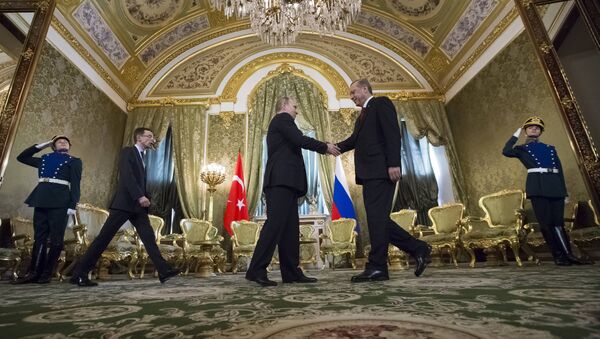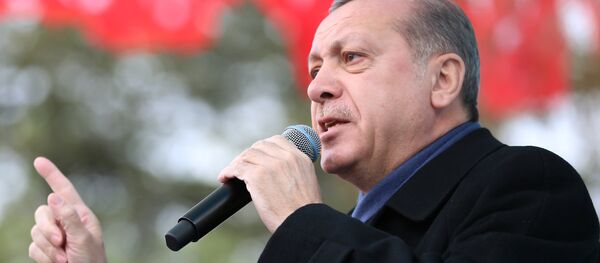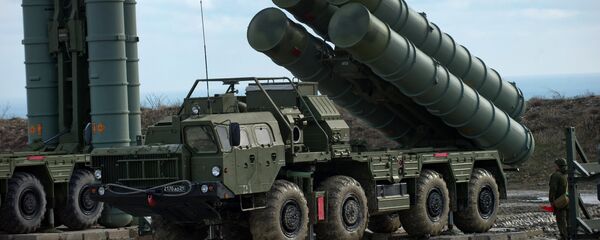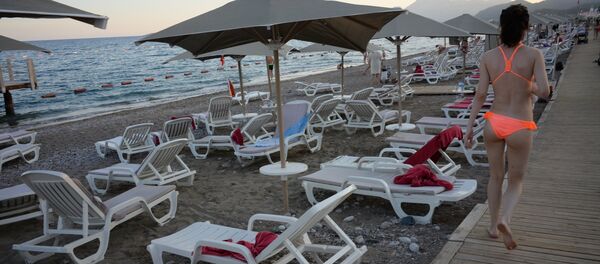In a press statement released last week ahead of Wednesday's meeting, the Kremlin seemed to confirm just how much may be riding on the Sochi summit. Its statement explained that the two sides "planned to discuss some pressing regional and international issues, above all, the ones related to the joint struggle against terrorism and the Syrian crisis."
Furthermore, as far as Russian-Turkish bilateral relations were concerned, the Kremlin emphasized that "the two leaders [would] exchange views on the entire array of Russian-Turkish relations, including in the context of the agreements reached at the 6th meeting of the High-Level Cooperation Council held in Moscow on March 10."
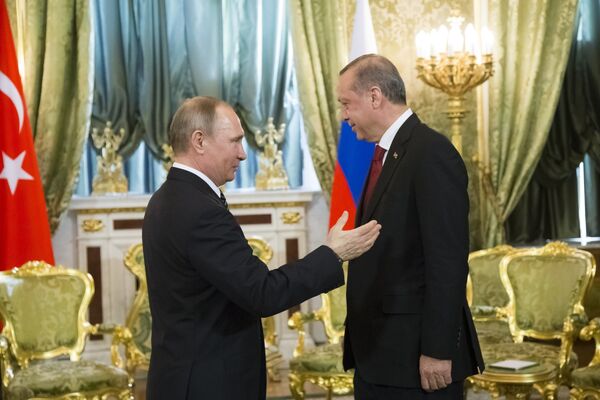
Ahead of Wednesday's meeting, Turkish presidential press spokesman Ibrahim Kalin confirmed that the Turkish side also plans to take the opportunity to discuss the sale of Russian S-400 air defense systems to Turkey.
"This visit is important in terms of the discussion of issues which are important for both countries – economic, tourism-related, as well as Syria," Kalin said. "In Sochi, the possible delivery of the Russian S-400 air defense system to Turkey will also be on the agenda. Our negotiations on this issue are continuing. I think that the meeting in Sochi will give them a new impetus."
The broad strokes of the expected topics of discussion aside, what exactly are the two sides expected to talk about? To begin with, there's the issue of Syria, and the associated fight against Daesh (ISIL/ISIS) and other terrorist groups.
Syria and Terror
The Sochi meeting certainly won't be the first time that the Syria issue and the fight against terrorism are raised. At their meeting in Moscow in March, Putin and Erdogan touched on the need to coordinate Russian and Turkish actions in Syria, not only to avoid military incidents and to stop the bloodshed, but also to step up contacts between the two countries' military and security forces to fight terrorism.
Moscow and Ankara hold differing stances on the conflict in Syria, a brutal war which has claimed the lives of over 220,000 people and created millions of refugees. Specifically, Moscow has stepped out firmly against foreign intervention in Syria's internal affairs, and joined Damascus's fight against Daesh and other Islamist extremist groups when it launched its military operation in September 2015.
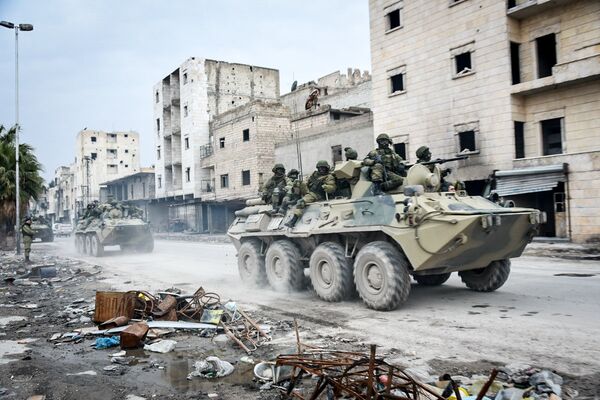
Ankara, on the other hand, has sought and continues to seek to topple the government of Bashar al-Assad, and has supported a number of militant groups fighting to that end. Furthermore, having launched a military operation of their own in northern Syria in August 2016, which formally wrapped up in late March, Ankara has attempted to quell the growing political influence of Syria's Kurds, and has urged Russia to stop any and all cooperation with the Syrian Kurdish Democratic Union Party and the affiliated People's Protection Units, which Ankara considers to be terrorist groups.
On each of these issues, Moscow and Ankara disagree. Nevertheless, the two countries have made progress on efforts to come to a compromise solution, joining with Iran to become guarantors of a nationwide ceasefire in Syria which came into effect December 30, 2016 and has helped to at least reduce the bloodshed. The triumvirate also made possible the Astana format of Syrian peace talks, resulting in several rounds of negotiations between Damascus and representatives of the armed opposition.

Armaments
In the last several years, Russia has actively pushed to expand its presence in the global arms market. President Putin has repeatedly observed that interest in Russian weapons is growing, including due to their effective use in real combat conditions in the ongoing Russian anti-terrorism operation in Syria.
Both sides have confirmed that it's very likely that the S-400 delivery will be on the agenda for Wednesday's high-level negotiations.
Negotiations on the advanced air defense system's delivery to Turkey started last year. In March, the CEO of Russia's state military equipment manufacturer Rostec, Sergei Chemezov, said that Turkey would be ready to buy S-400s using a loan provided by Moscow. Also in March, presidential aide for military technical cooperation Vladimir Kozhin confirmed that Russia did not see Turkey's NATO membership as an obstacle for the delivery of the systems, presumably referring to some sort of agreement by Turkey not to reverse-engineer the advanced weapons platform.
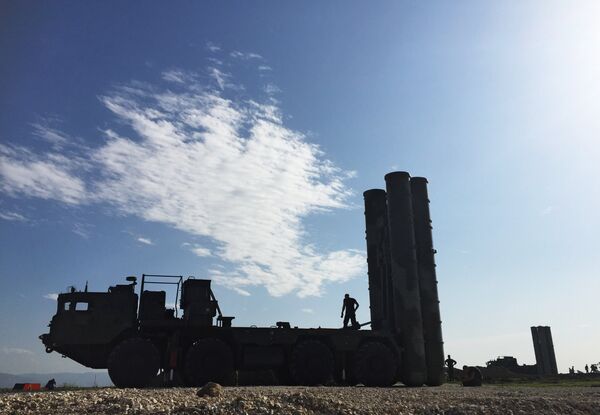
Explaining Moscow's position, Russian Senator Viktor Ozerov stressed that the development of Russian-Turkish relations in the military sphere is important, particularly since it can help to ensure the achievement of two Russian goals: the destruction of the terrorists in Syria, and a political settlement in the country, where Turkey is playing a crucial role via the Astana talks.
Trade
The final major issue on Wednesday's agenda is likely to be trade. Russia stopped tourist charter flights to Turkey and introduced an embargo on a series of Turkish products in early 2016, in response to a Turkish Air Force F-16's downing of a Russian Su-24M bomber jet operating in Syria in November 2015.
With relations starting to normalize following President Erdogan's formal apology for the attack, Russian-Turkish trade relations too have begun to return to normal, but the process is far from being complete.
Last October, Moscow took the first step by allowing some Turkish fruit and citrus back onto the Russian market. After that, it also lifted the ban on Turkish onions, cauliflower, broccoli, salt, chewing gum and flowers. However, seeking to support Russian agricultural producers, who have thrived amid the restrictions, Moscow has yet to lift the ban on Turkish frozen meat and poultry, tomatoes, cucumbers, grapes, apples, pears and strawberries.
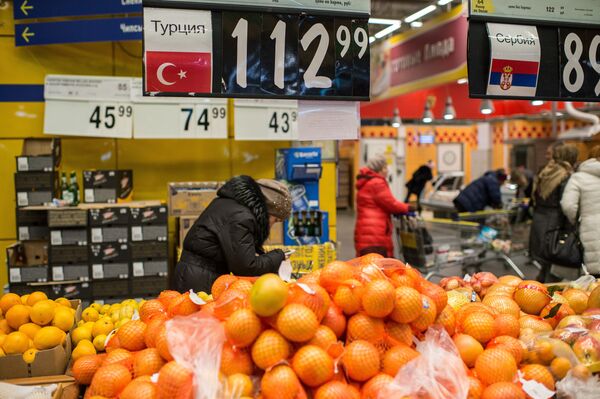
In response, in mid-March, Ankara altered the procedure regulating the import of certain Russian agricultural commodities to Turkey, including wheat, other grains, and sunflower products. Furthermore, Russia was excluded from the list of countries eligible for duty-free delivery.
With Turkey being a major export market for these products for Russian farmers, the Russian Ministry of Agriculture warned that Ankara's decision may lead to a complete halt to all Russian supplies of wheat, corn, beans and rice to Turkey, and to a reorientation to other markets. Moreover, last month, Russian civil aviation authorities informed Russian airlines about the possible cancellation of charter flights to Turkey, a move that could cost the Turkish tourism sector billions of dollars.
To sum up, President Putin will certainly have a lot to talk about in his meeting with his Turkish counterpart; after the low-point in relations reached in late 2015, the two countries have come a long way in coming to understand one another's interests on a number of issues, from trade, to security, to military cooperation. Several major problems remain, and have been outlined above; still, that's what diplomacy and summit negotiations are for — to solve such problems.
